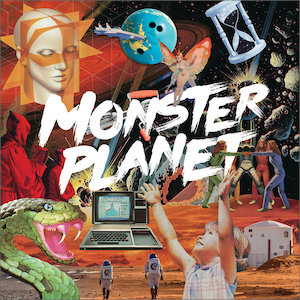At this event the music itself matters, and audiences would rather hear Autechre’s complex and aggressive IDM in a blacked-out club than cringe at Steve Aoki’s new Celine Dion remix or Skrillex and Diplo’s latest collaboration with Justin Bieber (yes, these are actual things that unfortunately happen in real life at other festivals). Here are some of the highlights of Decibel this year for me. Words and photos by Thomas Fang.
It’s nearly midnight on Sunday night, the final night of the 12th year of Decibel Festival. The preceding five days of the festival have been a blur of great music from over a hundred artists representing many styles of electronic music at 28 separate showcases, across 11 venues.
I’m at Re-Bar, an unassuming space that has actually hosted music events for 25 years, including a meet and greet by a local band called Nirvana back in 1991 (celebrating the release of Nevermind). The club is also known for being home to Flammable, the longest-running house music night on the west coast, every Sunday including this one. I usually find house music a bit formulaic and rarely interesting enough to hold my attention, but what keeps me here instead of calling it a night after a very full and amazing week is the man behind the decks: Sean Horton. Sean is the founder, president, curator, and creative director of Decibel, and despite all the work that must entail, he is treating everyone to a fine DJ set and looks very happy, in his element. In just a week Sean will announce that he has sold his house and is moving to LA, leaving the northwest behind. But right now Sean doesn’t look at all uncertain or exhausted, and his confidence is infectious. Earlier in the evening he gave an emotional speech during the Optical showcase at the Triple Door, during which numerous festival department directors appeared onstage and were thanked for their work. It’s these human moments that truly separate Decibel from other festivals, which seem faceless and corporate in comparison.
Decibel has also managed to pull off a neat trick once more: presenting an extensive and high-quality lineup, but avoiding overhyped popular artists who already have plenty of exposure. At this event the music itself matters, and audiences would rather hear Autechre’s complex and aggressive IDM in a blacked-out club than cringe at Steve Aoki’s new Celine Dion remix or Skrillex and Diplo’s latest collaboration with Justin Bieber (yes, these are actual things that unfortunately happen in real life at other festivals). Here are some of the highlights of Decibel this year for me.
Day 1
Decibel’s series of Optical events have consistently been among the best offerings in any given year, pairing bleeding-edge visuals with musicians who veer away from club-friendly territory into more adventurous realms. This year’s kickoff party at Re-Bar started with a set from Kid Smpl, a young Seattle producer who offered thumpy yet atmospheric controllerism. Immediately afterward was a performance by Raica, another Seattle musician who’s been garnering lots of buzz with her dark, experimental journeys. This set featured pulsing sequenced analog monosynth lines (Doepfer Dark Time and Waldorf Pulse Plus, for gearheads keeping score, and was that a humble Korg Monotron?) and great low-end presence, overall vaguely reminiscent of Delia Gonzalez’s collaboration with Gavin Russom, but murkier and at a slower pace. It was a little more meandering and less dark than some recent live sets posted on her Soundcloud, but she definitely held the crowd in rapture.
The big name on this showcase was Richard Devine, the Atlanta-based sound designer and modular synth wizard who has consistently created stunningly innovative releases on labels like Detroit Underground, Warp, and Schematic since the mid-’90s. I’ve been lucky enough to see Richard perform many times in many settings over the last dozen years (full disclosure: I booked several of the shows), but I always look forward to seeing him again because he never sounds the same twice. This set was decidedly less evil than the most recent one I witnessed (three months previously at the New Media Art and Sound Summit, in Austin), but still dominating the PA with pounding kick drums, complex percussive patches (using mostly a large Eurorack modular system, supplemented with a Nord Drum 2 and effects for good measure), and a surprisingly melodic and song-based approach consistent with his recent Vimeo uploads. This set ended early enough for me to head over to the Crocodile for tamer offerings from Archivist (slick 4/4 techno) and Cassegrain (more of the same), but I soon moved on to the Showbox for the most talked-about performer of the festival’s first day: Nicolas Jaar. I always feel that his essence is difficult to pin down, since his recorded output covers such a broad spectrum of moods and styles, and this DJ set was no different. In a fairly confusing manner, the set jumped from annoying disco to extended vocal samples to a remix of Can’s 1972 single “Vitamin C,” but there were some solid choices, and everyone in attendance seemed to be game for anything.
Day 2
This was my only day to check out the dB Conference, a series of daytime panels, talks, and workshops on synthesis and production techniques. This whole block of programming was professionally filmed and is available for free streaming online, a great resource for anyone who was unable to attend, or who missed some of the talks. The real fireworks began in the evening though, and I was glad for the opportunity to have both a car and a bicycle in order to more quickly move between venues that were distant from each other.
I started the night at Neumos, catching a bright, melodic, and lively set by Photay, one of the most exciting musicians I hadn’t heard until just before the festival. Next up was Seattle’s veteran electronic producer Lusine. Having seen him many times starting in 2001 and being more partial to his earlier work (A Pseudo Steady State and Serial Hodgepodge are still favorites), I was pleasantly surprised to see that he’s now being joined onstage by a live drummer, who adds a much-needed element of physicality and vitality that was missing from previous performances. Unfortunately I did have to bail out partway through, for a breakneck downhill ride to Re-Bar to see solo act Bardo:Basho (Kirsten Thom) at the Discwoman showcase, part of Decibel’s conscious effort to present more female artists. Kirsten’s set was decidedly a highlight of the night, immersing the room in ethereal vocals and hypnotic downbeat grooves that flowed seamlessly. She has been garnering well-earned recognition as co-curator of the monthly Elevator event series, and her own music should appeal to fans of labels as diverse as 4AD and Modern Love.
Another quick bike ride dropped me into the middle of a very energetic set at Showbox by former Seattle resident (now based in Barcelona) Filastine, performing with a vocalist named Nova. Filastine excels at fusing disparate styles into a global sound with heavy beats and bass, well-suited for street protests and not afraid to get political. This tour featured an array of four video screens whose projections were controlled by custom software in sync with the live audio, but either the venue was too big or there just weren’t enough people in the room and the audience couldn’t rally enough energy, even when the two performers jumped into the crowd with drums at the end of the set.
On stage next was one of my favorites, Clark, a British artist who’s been cranking out interesting records on Warp with some regularity since 2001. His set consisted mainly of 4/4 dancefloor stormers (though with his trademark weirdness intact), including a few from last year’s self-titled album, which did finally get the crowd moving. Unlike some previous gigs, this one featured no visuals, but Chris himself was entertaining to watch, violently assaulting the knobs on a Minimoog Voyager (how often must he have to get these things repaired?) and simultaneously wrangling an APC40, laptop, MFB Schlagzwerg, and assorted reverb and delay pedals. If you weren’t there you missed a good one, but it did seem similar to his US shows with Nosaj Thing earlier this year, or for that matter his set at Decibel that I covered in 2012. What he’s doing live now seems better than a couple of UK shows I saw in his Turning Dragon / Totems Flare time period, but maybe not quite as engaging as a very memorable performance at Sonar Festival in 2007 with a drummer.
Picking up the baton and keeping energy high was the next performer, the very unique and incomparable Dan Deacon. If you only know his recorded work, do treat yourself to a live show on one of his frequent tours! Each performance invites audience participation with dance-offs, lots of onstage banter, and driving, exuberant songs. No room for irony, no critical distancing, just fun colorful music and everyone dancing like children with lots of sugar and no grownups or ADHD meds in sight.
Day 3
One of the most anticipated events of the festival was the Resident Advisor showcase at the Showbox, and that’s where I spent most of Friday night. The first act was Cygnus, a relatively obscure Texas-based musician I’d last seen at a laptop battle I was judging in 2010. His star has certainly risen this year, after Autechre selected him as an opening artist for their entire North American tour, and he proved with his set at Decibel that he’s worthy of the honor. Musically I’d describe it as quality braindance with a little acid and some Detroit techno influences thrown in for good measure, and it was a perfect way to start the night. Gear being used: a Waldorf Blofeld, Roland Aira TB-3, Akai MPC500, and then Elektron Octatrack and Analog Rytm.
Immediately afterward was a fine DJ set by Rob Hall, veteran of numerous Autechre tours in addition to his work with Gescom and respected UK label Skam going back to the ’90s. Hall’s selections featured booming bass drums, insistent rhythms, and very skillful mixing. Sliding in nicely afterward on this bill was Laurel Halo, a midwestern producer who has been performing around the globe for the last few years and releasing albums on Hyperdub. She delivered a very competent set of head-nod techno using what appeared to be the now-ubiquitous Octatrack and Analog Rytm, nice and dark but maybe just a little repetitive. I took a quick jaunt over to the Crocodile to catch part of a set by Container, and was glad I did. This solo act from Providence has been tearing up dancefloors on tour with an MC-909 for a couple of years now, and impressed me with hard-hitting beats and a scruffily honest and direct lo-fi aesthetic that seems simple until you try to compare it to what anyone else is doing.
Back on the bike through Seattle’s standard light drizzle, I returned to Showbox for the big headliner, Autechre. Without hesitation I’ll admit that Autechre defies easy description, and that’s part of what makes this duo so compelling. They’ve been consistently releasing albums since 1993 (11 in total, beginning with the classic Incunabula), and while their early work in the era of Warp’s Artificial Intelligence compilations was groundbreaking and hugely influential, their more recent output has been equally well-regarded despite being very difficult listening at times. Having seen them on two previous occasions (2001 US tour: disappointingly minimal; 2008 in Europe: much more engaging and satisfying), I knew only that they would perform with no lights and that their sound would be complex and bewildering. This they delivered in spades, with audience responses ranging from yoga moves to Butoh shuffling and spastic convulsions, in lieu of dancing. Most of the audience was quiet for the duration of the set, presumably trying hard to make sense of what they were experiencing, with “my brain is gonna melt!” being the only audible statement anyone made near me. My notebook is nearly blank in this section; it’s been said that writing about music is like dancing about architecture, but perhaps writing about Autechre’s music could even be as difficult as creating it. The most positive endorsement I can give is that as confused as the crowd was, almost no one seemed to be leaving after a full hour, not even to go catch Pharmakon at another venue. Amusingly, members of the press were allowed to take photos during the first ten minutes but without using a flash, so almost everyone gave up immediately due to the total blackout. When Autechre toured after Confield in 2001, the only visible light came from two Macbook logos, but this time even those were carefully taped over, and the only illumination came from a few LEDs on the stage. MIDI controllers? It hardly mattered given the alien soundscapes and unpredictable, algorithmically generated beat patterns blasting over our heads. In recent interviews, Autechre hint that their current process involves software patches reliant on conditionals and feedback, granting some degree of independent autonomy to their musical language that transcends both conscious intention and the risk of repetition or predictability.
After the set ended, I didn’t even contemplate going to the after hours showcase at Q Nightclub, which ran from 2:30 until 7am. Marcel Dettmann was headlining it and is starting to become better known in the states after a long residency at Berlin’s famous Berghain, but honestly his DJ set at the Moog showcase during SXSW six months ago was completely vanilla and simplistic compared to what we had just heard for the last four hours at Showbox.
Day 4
On Saturday I decided to attend only the Optical showcase (“Dark Overtones”) at the Triple Door, a seated dinner-theater style venue that for years now has been perfect for the more ambient fare in the festival’s lineup. Kicking the night off was UK-based Alexander Lewis, better known for his work as Shifted but also putting out occasional music under his own name on labels such as Blackest Ever Black and Total Black (I’m sensing a theme here). His performance was a high-quality textural drone odyssey, dark and moody, with projections of decaying old film loops.
Following his set was Dasha Rush, delivering murky experimental techno with great subterranean percussive passages and some spoken word interludes, with evolving monochromatic constellations of dots as visual accompaniment. Later in the set, beats fell away leaving rich ethereal ambience, one of the best sets of the week despite a distractingly long vocal sample that was repeated too many times.
The night’s headliner was Tim Hecker, the Canadian sound artist whose releases on Mille Plateaux and Kranky have set the standard for heavy, distorted ambient music. I’d previously seen him at Asheville’s Moogfest in 2011 in a cavernous civic center and in 2014 at the Big Ears festival in Knoxville, but those two sets felt a bit alienating compared to this more intimate one. His music this time around was starkly beautiful, nuanced, less abstract than some of his recorded work and more traditionally musical. Percussive and melodic sequences emerged, but shared space with the fuzzed-out sustained washes of sound for which he’s known. The total sonic palette had lots of depth, more than enough to fill the room. Later in the evening there would be more dancefloor techno at the Kompakt and Droid Behavior showcases, but the introspective tenor of this Optical show was an excellent emotional counterpoint.
Day 5
Sunday was a nice sunny day for lounging around in Volunteer Park, enjoying some laid-back housy DJ sets by Dirtybird’s Justin Jay and others. In the evening I returned to the Triple Door for the final Optical showcase (“Viscerality”), which turned out to be a mixed bag. Portland-based musician Strategy offered somewhat lo-fi and dirty synth lines, not much evolved since his days on Kranky, accompanied by kaleidoscopic linear patterns from what looked like an Atari Video Music unit. The next set was by Briana Marela, a local performer (with backing musicians) doing the most traditionally singer-songwritery music of the entire festival. She has a good singing voice, but her over-earnest love songs came across as rather twee and less musically compelling than most of the festival’s lineup.
The standout performance was by Eskmo (Brendan Angelides), the California sound designer whose releases on Ninja Tune, Warp, and more recently Apollo have been full of intricate beats, heavy bass, and sometimes decontextualized foley work. I hadn’t seen him since a Warp showcase at SXSW in 2010 (and before that, a Decibel Festival performance as Welder back in 2008), and was keen to see what new tricks were up his sleeve. Just before taking the stage Brendan chatted with me in the press suite, describing how he’d been in the venue’s basement on a scavenger hunt for items to use as percussive instruments onstage, such as empty water jugs and a long wooden rod. On cue, waitstaff brought in three cans of Sunkist which would later be opened onstage, sampled and looped. Much of the set showed off his technical skills, recording objects being struck and then looping these discrete noises to build up rich interlocking rhythms into a skeleton on which to flesh out synth parts with occasional live vocals.
After Eskmo’s set, I drove to the Showbox SoDo to discover that the headliner there, Thievery Corporation, had started an hour before the time in the printed festival schedule. I was still able to see the last several songs of their set, which sounded energetic, polished, and very consistent with a few previous shows I’d seen, including some dates on the US tour with Massive Attack in 2010. Their large cast of performers and global influences always get a crowd moving, and though this venue may have been a third shy of its full capacity (1500, a tall order for a Sunday night in Seattle), the feedback loop of energy shared by the band and audience led to a fitting climax for the entire festival. My only stop afterward was the aforementioned DJ set by Nordic Soul (Sean Horton), icing on the cake that was yet another well-curated year of Decibel!
For more info, visit decibelfestival.com.






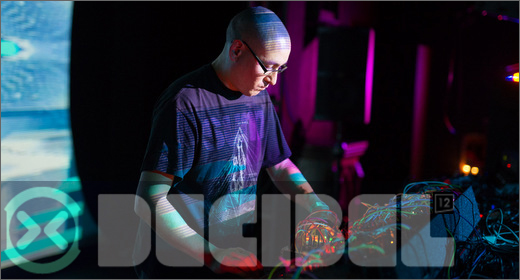
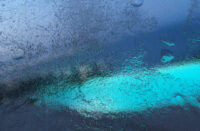
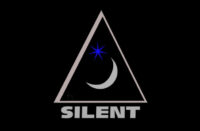

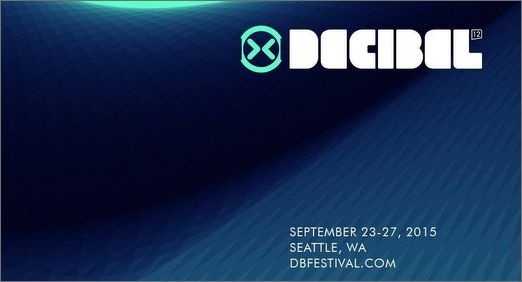































































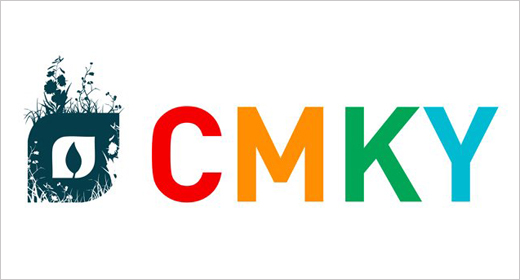
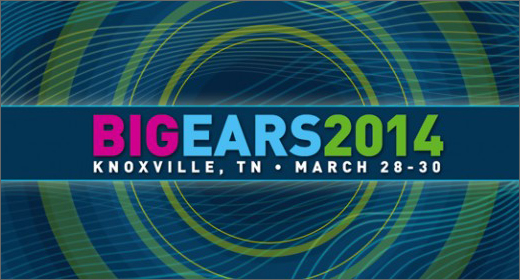
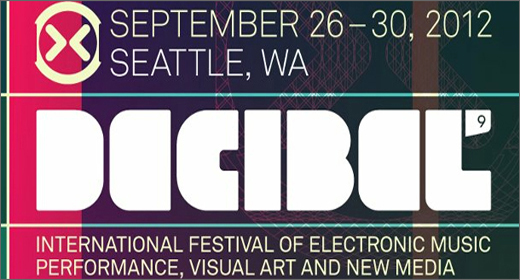
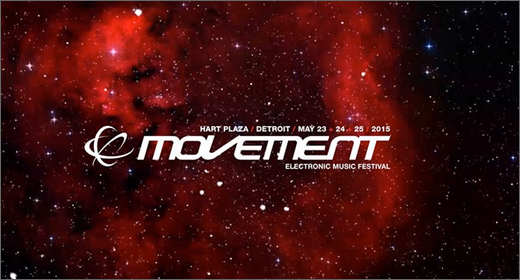
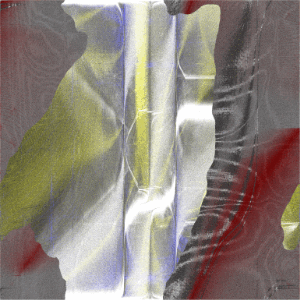

![Pole :: Tempus Remixes (Mute) — [concise]](https://igloomag.com/wp/wp-content/uploads/2025/04/pole-tempus-remixes_feat-75x75.jpg)






![Hasbeen :: Bunker Symphonies II (Clean Error) — [concise]](https://igloomag.com/wp/wp-content/uploads/2025/04/hasbeen-bunker-symphonies-ii_feat-75x75.jpg)
